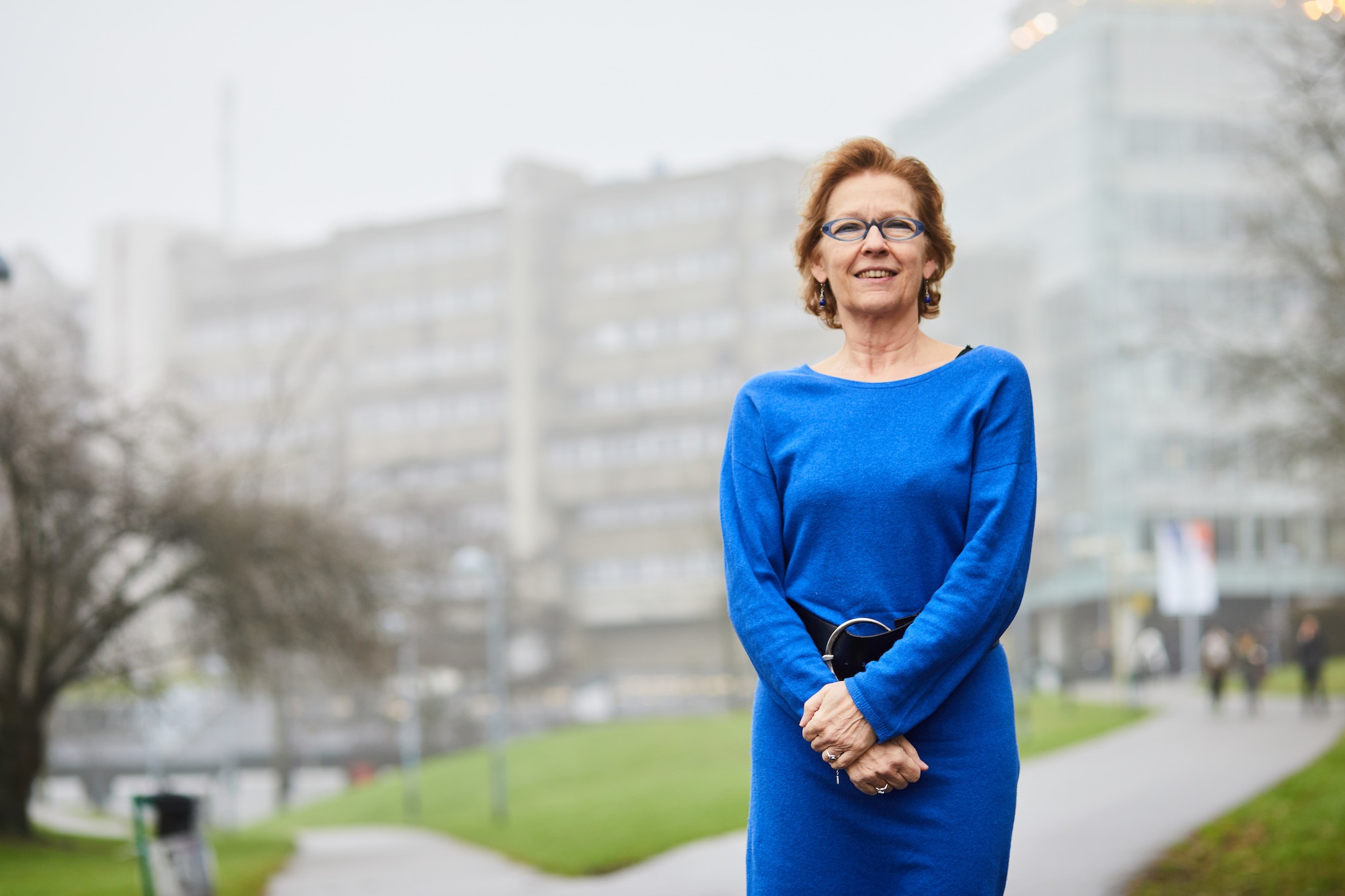Sonja Snacken began at VUB as a Law student, became the very first full-time doctoral student in Criminology at VUB and gained international fame as a VUB professor with her scientific research and dedication regarding the rights of prisoners. In 2021, she became an emeritus. She leaves an enormous academic legacy. She was not only involved in stamping the Criminology programme out of the ground – with which she paved the way for new generations of students. During her career she also inspired and coached twenty doctoral students, who are now following in her fantastic footsteps. Yet not every doctoral student in Criminology will have such an extensive academic career. Many will end up working in other sectors. Sonja Snacken: “I hope that their creativity, ability to work autonomously and responsibility are sufficiently appreciated.”
Professor Snacken: “Personally, I was not destined to do a doctorate. First, I studied Law with the intention of using it later in a political career. Then I did an additional Criminology degree. But it was not common to do a doctorate, neither in law nor in criminology.”
The fact that’s what I ended up doing was partly a coincidence. “During my law education I was required to do an assignment on abortion. I worked really hard on it, which meant it was a solid analysis and I received the comment: ‘If you did that yourself, you should continue your research’. At the end of that course I spoke with three professors and decided to stay on for an additional degree in criminology. At the time, that programme comprised only two master years. It was only later that it became a full four-year cycle.”
Prisoners’ rights
During her further studies, Snacken was given the chance to do the first full-time doctoral research in criminology at VUB, with Prof. Christian Eliaerts as her promotor. The very professor who had made the positive remark about her work on abortion.
For her doctorate, Snacken studied the short prison sentences in our country. Why would someone be sentenced to imprisonment for less than six months, when this has already been criticised for 100 years? She investigated why the prosecution requested such a punishment, why a judge ruled such a punishment and how prisoners actually handled such punishment. She compared this with other people who got away with probation. In doing so she could benefit from insights acquired in her combination of studies in law and criminology.
Professor Snacken: “Then, at international congresses, I came into contact with researchers from other countries who shared the same interests in the rights of prisoners. This produced new insights for Belgian studies and I was also able to discuss the Belgian situation.”
Thanks to her research work, professor Snacken also discovered the abuse in Belgian prisons. As a result, the ‘European Committee for the Prevention of Torturing and Inhuman or Humiliating Treatment or Punishment’ from the European Council used her findings during its first visit to our country. “So, my research became the basis”, says professor Snacken.
In addition, the doctorate gave her the opportunity to set to work, first as an assistant, and then as a professor, in the department of criminology at VUB. “As a result of the Coens decree in 1991 the programme had to be extended from two years to four. Together with Christian Eliaerts I was then given the chance to continue its development.”
Professor Snacken: “When I began my doctorate it was made clear to me that it was a four-year assignment and that I should not count on an academic career afterwards, as the opportunities were scarce. Yet I managed in the end.”
Continue reading below the picture. From 2016 to 2018, Professor Snacken also served as Vice-rector for Internationalization Policy at VUB.
From 2016 to 2018, Professor Snacken also served as Vice-rector for Internationalization Policy at VUB.
Guiding doctoral students
In the meantime, Snacken coached twenty doctoral students herself. “That may not seem like many compared to other disciplines, but you should know that, in criminology, it is always a matter of new research, compared to other disciplines where diverse aspects of the same topic are covered.”
“My advice to doctoral students would be that they should be able to work passionately on one subject for a number of years. That is a wonderful, but also frustrating period, as the more you know about a particular topic, the more things you realise. It will often feel like lonely work. Sometimes you end up in a situation where you feel like throwing your entire study across the room because you’re fed up with it. That’s why it’s also important to keep talking to people and seeking support. It’s remarkable how with many doctoral students the emotions only come to the surface when they have finally achieved their goal. That was just the same with me.”
New projects are subsidised by bodies such as the The Research Foundation – Flanders (FWO) . In this case it must be a matter of fundamental research. Other clients were King Baudouin Foundation or the Federal department of Justice, who wanted more applied research. “But later on, the department of Justice set up its own research institution.”
For post-doctorates it is important to publish in English, and sometimes also in French. “In doing so you get in touch with foreign-language networks, with colleagues who read other books and journals, and have other contacts. This also generates new angles.”
Appreciation of value
Are things different compared to the past? “It is harder to end up in the academic world afterwards. That was already the case in my day, but now it is even harder. More doctorates are being done, while the funding from universities is under pressure. Sometimes this means they end up in sectors that are different to those in which they did their doctorate. I hope that their creativity, their ability to work autonomously and their responsibility are sufficiently appreciated.”
Also read: